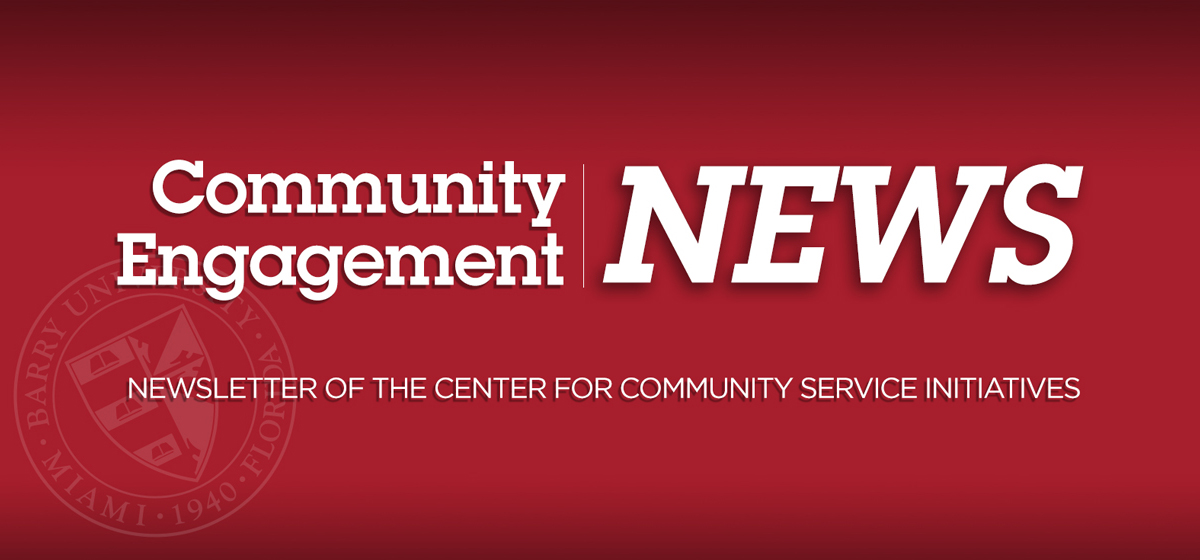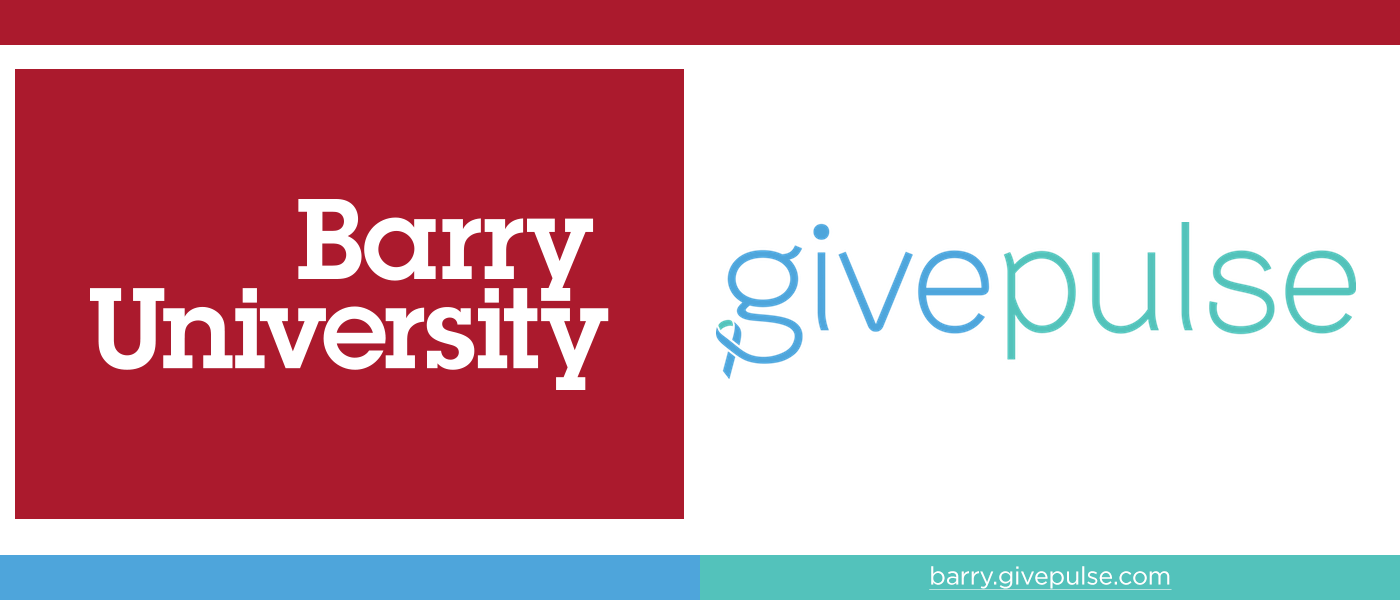May 17, 2021
IN THIS ISSUE
- Student Leaders Excel in Academics and Civic Engagement...
- Refugees Receive Resettlement Assistance From Barry Social Work Students
- Barry University Traditions Include Annual Community Engagement Events
- Community-Based Research Incentive Program Continues Next Academic Year
Student Leaders Excel In Academics And Civic Engagement
Three Barry Service Corps Fellows are among this year’s recipients of Deans’ Awards and the St. Catherine Medal for Outstanding Service.
Luca McLeod received the College of Arts and Sciences Dean’s Award. McLeod specialized in cybersecurity as part of his studies in computer information sciences. He participated in several civic engagement projects, including post-hurricane relief and recovery projects in the Florida Keys and The Bahamas, and an Alternative Spring Break trip to Panama City and Tallahassee, Florida.
Dr. Karen Callaghan, the dean, made the virtual presentation of the award to McLeod.
Dai’ Jonnai Smith is the recipient of the College of Nursing and Health Sciences Dean’s Award. Smith completed the Bachelor of Science in athletic training. Her civic engagement has included participation in Alternative Breaks.
Dr. Katherine Ludwig, professor of biomechanics and associate dean for clinical and prevention sciences, praised Smith’s achievements. She highlighted Smith’s participation in an Alternative Break project in Haiti and her support of efforts to promote dignity for incarcerated women.
Martina Muñoz, who double-majored in finance and international business, received the St. Catherine Medal. She is known for her promotion of an artisan project benefiting women in northwestern Haiti.
Fr. José-David Padilla, an assistant professor in the Department of Theology and Philosophy, commended Muñoz for her “selflessness in serving the underserved.”
The award winners were honored at the Honors Convocation on May 7. Students were recognized for community service, leadership, and academic excellence. University President Dr. Mike Allen and Provost Dr. John Murray spoke at the convocation.
Refugees Receive Resettlement Assistance From Barry Social Work Students
Undergraduates Provide Significant Service To Local Communities

Church World Service South Florida coordinated the resettlement of the Honduran and Pakistani refugees.

The social work students engaged in community-based work with several organizations. A community needs assessment was part of the “Fostering Resilient Community” module. Seen here is Shekinah Maraj taking part in the neighborhood assessment.
One family from Honduras and another from Pakistan now feel fully resettled into their new home, thanks to the support of a Barry community partner assisted by a quartet of undergraduates.
Church World Service South Florida coordinated the resettlement of the Honduran and Pakistani refugees. Assigned to the refugee resettlement agency, Nicole Ortiz, Rafaela Garcia, Matthieu Walker, and Constanza Veliz worked in pairs, tutoring family members. They used a tutoring guide developed by Dr. Jennie Ricketts-Duncan, an associate professor in Barry’s Adrian Dominican School of Education.
The students also helped the resettling refugees navigate the school system, including the enrollment process, and obtain state-issued identification cards.
Ortiz, Garcia, Walker, and Veliz were among students taking Service-Learning and Social Work Practice, who supported the work of several community-based organizations during the spring semester. The students were enrolled in two sections of SW 323, a designated service-learning course that requires 45 hours of community-focused service.
From tutoring “at-risk” youngsters to collecting data as part of a neighborhood assessment, students provided significant service to local communities throughout the semester. The students reflected on their experiences during the annual Service-Learning Symposium organized by the School of Social Work.
The students assigned to Church World Service participated in a service-learning/civic engagement module, “Welcoming New Americans,” in the course section taught by Lizbeth James, MSW, an adjunct faculty member. They twice visited the CWS Miami office in Doral to reorganize the agency’s donation storage area.
In addition, with assistance from Barry Service Corps Fellow Joseph Minani, they developed a social media campaign to debunk myths about refugees. Minani is the author of a 2020 book titled “The Mind of a Refugee: Understanding the Human Potential for Current and Former Refugees to Change Our Planet.”
Students enrolled in the section of SW 323 taught by Preeti Charania, LCSW, provided meaningful service to the community through such organizations as A New Start: Financial and Social Services, Camillus House, and Breakthough Miami. Charania is an adjunct faculty member.
Breakthrough Miami facilitated student tutoring as part of an academic enrichment program for “under-resourced” students in grades 5 through 12.
The neighborhood assessment was part of the “Fostering Resilient Community” module in Liz James’s course section. Jessica Chery, Fabiola Jean Pierre, Maria Rodrigo, and Shekinah Maraj were co-investigators in the assessment conducted as a community-based research project in La Paloma, the unincorporated neighborhood adjacent to Barry’s main campus.
Those students’ civic engagement efforts included the piloting of a radio show, “La Paloma Neighborhood News,” which aired every Friday evening.
In attendance at the Service-Learning Symposium were Dr. Glenn Bowen, executive director of the Center for Community Service Initiatives (CCSI), and Dr. Heather Johnson Desiral, a CCSI-based project assistant.
Barry University Traditions Include Annual Community Engagement Events

The Community Engagement Symposium and Community Engagement Awards are scheduled for the last Wednesday of March. In the file photo above, then Barry Service Corps Fellow Gabriel Bouani discusses his poster with Fabio Naranjo, a social work faculty member.

The Community Engagement Symposium and Community Engagement Awards are now listed among the Barry University traditions.
Both events have been held annually since 2014 except last year when the symposium was cancelled because of the 2019 viral disease known as COVID-19. The seventh annual Community Engagement Symposium and eighth annual Community Engagement Awards were held this year.
Other Barry traditions include Dr. Martin Luther King, Jr. Day of Service—the Saturday immediately preceding the King holiday in January. The Center for Community Service Initiatives (CCSI) coordinates collaborative service projects for volunteers, including students and staff members.
Next year’s MLK Day of Service is January 15. As in previous years, service projects will benefit marginalized communities.

MLK Day of Service in January is one of the Barry University traditions. The CCSI coordinates collaborative service projects for volunteers.
Earlier this month, Dr. Scott F. Smith, vice president for mission and student engagement, referred to the traditions as he outlined student engagement events for academic year 2021–2022. Events include the College Brides Walk on February 18.
“The collaboration between Academic Affairs and DMSE (the Division of Mission and Student Engagement) on these events seeks to build community and connections that will engage our students and enhance student satisfaction,” VP Smith said.
Community-Based Research Incentive Program Continues Next Academic Year
The Community-Based Research Incentive Program is expected to continue next academic year. Incentives of up to $1,000 will be awarded through a competitive process to faculty members who teach undergraduate or graduate courses, or both.
Community-based research (CBR) is a collaborative process of critical inquiry into problems or issues faced by a community. Faculty (and sometimes staff) members and students collaborate with community partners on applied research projects that address specific problems or issues and simultaneously promote social change. Research questions emerge from the needs of the community. The goal of the research is to produce and disseminate information that will benefit community members or agencies serving the community.
Through CBR, students learn research design, data collection, data analysis, and reporting.
A CBR project may be conducted by an entire class, or by a group or team. Each team must include at least one student, a faculty member (as co-investigator and/or mentor), and a community partner. Staff members may be included on the research team.
CBR may be incorporated into a course as the service-learning component. As such, the research itself and the products of the research constitute the participating students’ service to the community. Students may do critical reflection through the reporting process.
All applications will be assessed by the CBR Incentive Program Application Review Committee, composed of faculty members. Additional information on the CBR Incentive Program is available from the CCSI via email at service@barry.edu.
SERVICE-LEARNING PROJECTS: In the face of the 2019 coronavirus disease (COVID-19), collaborative service benefiting local organizations and the communities they serve yielded positive outcomes—many as part of the Service-Learning and Social Work Practice course.
LA PALOMA STEERING COMMITTEE: To further the partnership between Barry and the unincorporated neighborhood adjacent to the university’s main campus, a steering committee was formed recently.
CONFERENCE PRESENTATION: An interdisciplinary group of faculty members will be presenters at a national conference on community-engaged scholarship in the fall.
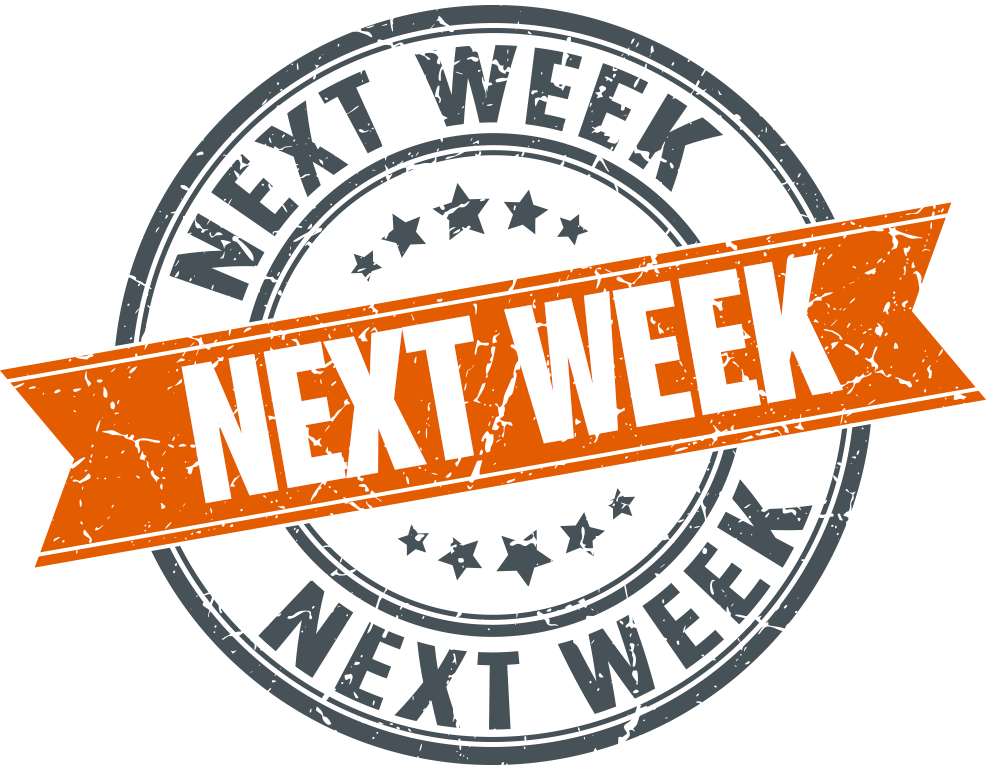
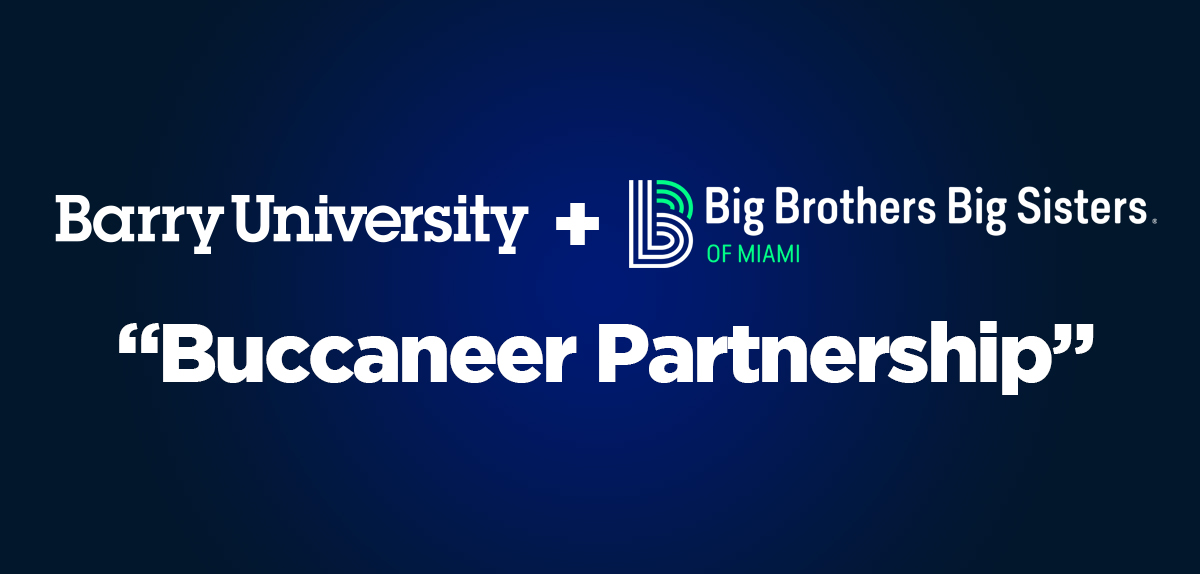
Apply to become a mentor (aka Big): https://bbbsmiami.org/volunteer/apply/
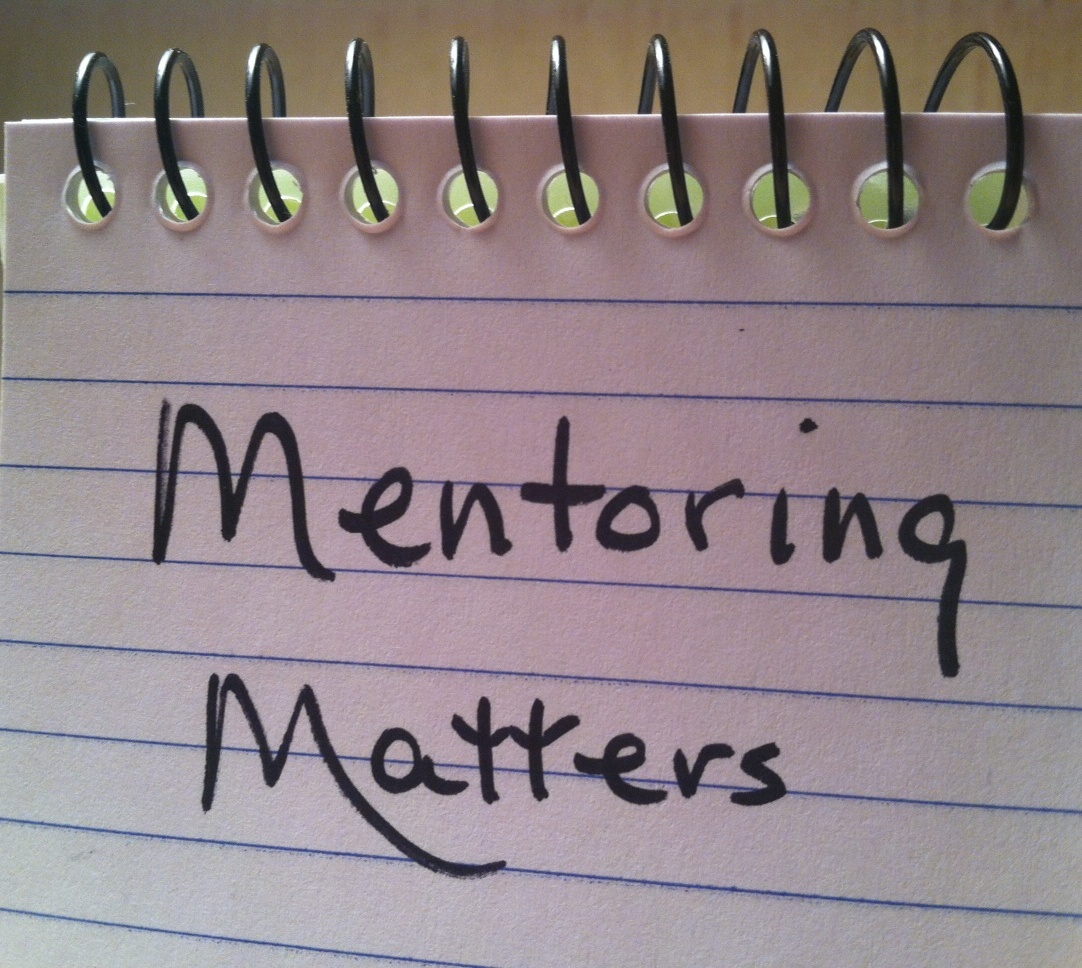

11300 NE 2nd Avenue
Adrian 208
Miami Shores, FL 33161

